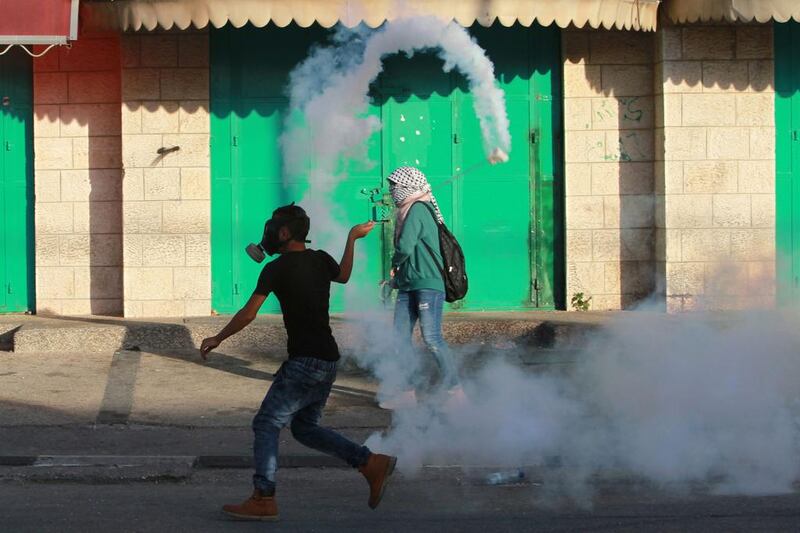WASHINGTON // Violence and settlement activity are undermining the viability of a two-state political solution to the Israeli-Palestinian conflict, the US state department said, as secretary of state John Kerry announced that he expected to travel to the region “in the coming days”.
Thirty-two Palestinians, including alleged attackers, protesters and children, and seven Israelis have been killed in two weeks of bloodshed.
Mr Kerry has “highlighted our concern that current trends on the ground, including this violence, as well as ongoing settlement activity, are imperiling the viability of eventually getting to a two- state solution”, state department spokesman John Kirby said late on Wednesday.
“Now, we have seen some – I wouldn’t call the checkpoints this – but we’ve certainly seen some reports of what many would consider excessive use of force,” he added.
“Obviously, we don’t like to see that, and we want to see restrictions that are elevated in this time of violence to be as temporary as possible if they have to be enacted.”
While Mr Kirby said Mr Kerry had been “unequivocal” in condemning Palestinian attacks on Israelis, he also said the state department had reviewed an October 9 stabbing of four Palestinian men in the Israeli town of Dimona and considered it an “act of terrorism” as well.
In a speech at Indiana University on Thursday, Mr Kerry said he expected to be travelling to the region “in the coming days” and “would remain very closely engaged in order to support efforts to stabilise the situation.”
Mr Kirby had said on Wednesday that he could not confirm the timetable nor the venue of any talks but that Mr Kerry hoped to talk to local leaders.
“I think [Mr Kerry] has been very clear that he wants both sides to take affirmative actions ... to de-escalate the tension, to restore calm, and to try to move forward towards a two-state solution,” Mr Kirby said, late on Wednesday.
He played down the possibility of a revived peace process, however, and indicated that Mr Kerry would not necessarily go to Israel or the Palestinian Territories.
Meanwhile, Israeli security forces deployed massively in Jerusalem on Thursday, with soldiers arriving to reinforce police.
Some 300 were due in place by Sunday, but conscripts wearing fluorescent vests marked “police” could already be seen guarding Tel Aviv’s bus station.
The last time soldiers deployed in such large numbers was in 2002, during the second intifada, according to a security source.
In the first two intifadas, in 1987-1993 and 2000-2005, hundreds of people were killed and many more hurt in near daily violence.
The military deployment is the latest step by Israel to beef up security in the city. Thousands of additional police and paramilitary guards are already on patrol, and Israel has also erected concrete barriers and checkpoints outside some Arab neighbourhoods of east Jerusalem.
At stops along the main road between Jerusalem and the West Bank city of Hebron – a major junction to other points in the occupied territory – on Thursday, border police were boarding and searching every bus.
Meanwhile, police said soldiers on a train near the northern port of Haifa saw someone they considered suspect and began to shout “terrorist”.
An officer sitting in the front carriage fired a single shot in the air and someone later pulled the emergency brake. No suspect was found and no one was hurt.
Shahr Omraq, 51, a cleaner from east Jerusalem, said the unrest has made him and other Palestinians objects of Israeli hostility.
“Everyone suspects us,” he said. “Racism is growing.”
On Wednesday night, Palestinian president Mahmoud Abbas again called for peaceful resistance, but young people fed up with Israel’s occupation and the lack of progress in peace efforts have grown tired of his leadership.
* Agencies





